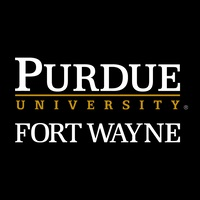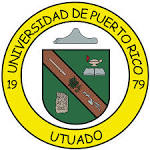What do they do?
Operate or tend equipment to control chemical changes or reactions in the processing of industrial or consumer products. Equipment used includes devulcanizers, steam-jacketed kettles, and reactor vessels.
Also known as:
Chemical Operator, Chemical Processor, Chlorination Operator, Control Board Operator, Multiskill Operator, Outside Operator, Process Operator, Spray Dry Operator, Vessel Operator
-
-8.6%
Change
Ranks #52 in job growth rate460Job Openings
Ranks #6 in net job growth
-
Brazosport College
Lake Jackson, TX
-
Lamar Institute of Technology
Beaumont, TX
-
Alvin Community College
Alvin, TX
-
Del Mar College
Corpus Christi, TX
-
Eastern Florida State College
Melbourne, FL
Looking for colleges that offer a specific major? Use the College Match Tool to find your best-matched schools and discover your estimated Net Price!
- Doctorate or Professional Degree (1%)
- Master's degree (4%)
- Bachelor's degree (22%)
- Associate's degree (10%)
- Some college, no degree (25%)
- High school diploma equivalent (32%)
- Less than high school diploma (6%)
People in this career often have these skills:
- Operations Monitoring - Watching gauges, dials, or other indicators to make sure a machine is working properly.
- Operation and Control - Controlling operations of equipment or systems.
- Monitoring - Monitoring/Assessing performance of yourself, other individuals, or organizations to make improvements or take corrective action.
- Reading Comprehension - Understanding written sentences and paragraphs in work-related documents.
- Active Listening - Giving full attention to what other people are saying, taking time to understand the points being made, asking questions as appropriate, and not interrupting at inappropriate times.
- Critical Thinking - Using logic and reasoning to identify the strengths and weaknesses of alternative solutions, conclusions, or approaches to problems.
- Judgment and Decision Making - Considering the relative costs and benefits of potential actions to choose the most appropriate one.
People in this career often know a lot about:
- Production and Processing - Knowledge of raw materials, production processes, quality control, costs, and other techniques for maximizing the effective manufacture and distribution of goods.
- Chemistry - Knowledge of the chemical composition, structure, and properties of substances and of the chemical processes and transformations that they undergo. This includes uses of chemicals and their interactions, danger signs, production techniques, and disposal methods.
- Mechanical - Knowledge of machines and tools, including their designs, uses, repair, and maintenance.
- Computers and Electronics - Knowledge of circuit boards, processors, chips, electronic equipment, and computer hardware and software, including applications and programming.
- English Language - Knowledge of the structure and content of the English language including the meaning and spelling of words, rules of composition, and grammar.
- Mathematics - Knowledge of arithmetic, algebra, geometry, calculus, statistics, and their applications.
- Public Safety and Security - Knowledge of relevant equipment, policies, procedures, and strategies to promote effective local, state, or national security operations for the protection of people, data, property, and institutions.
- Law and Government - Knowledge of laws, legal codes, court procedures, precedents, government regulations, executive orders, agency rules, and the democratic political process.
People in this career often have talent in:
- Oral Comprehension - The ability to listen to and understand information and ideas presented through spoken words and sentences.
- Oral Expression - The ability to communicate information and ideas in speaking so others will understand.
- Problem Sensitivity - The ability to tell when something is wrong or is likely to go wrong. It does not involve solving the problem, only recognizing that there is a problem.
- Control Precision - The ability to quickly and repeatedly adjust the controls of a machine or a vehicle to exact positions.
- Near Vision - The ability to see details at close range (within a few feet of the observer).
- Written Comprehension - The ability to read and understand information and ideas presented in writing.
- Perceptual Speed - The ability to quickly and accurately compare similarities and differences among sets of letters, numbers, objects, pictures, or patterns. The things to be compared may be presented at the same time or one after the other. This ability also includes comparing a presented object with a remembered object.
- Information Ordering - The ability to arrange things or actions in a certain order or pattern according to a specific rule or set of rules (e.g., patterns of numbers, letters, words, pictures, mathematical operations).
- Multilimb Coordination - The ability to coordinate two or more limbs (for example, two arms, two legs, or one leg and one arm) while sitting, standing, or lying down. It does not involve performing the activities while the whole body is in motion.
- Far Vision - The ability to see details at a distance.
People in this career often do these activities:
- Maintain safety.
- Record operational or production data.
- Operate chemical processing or water treatment systems or equipment.
- Watch operating equipment to detect malfunctions.
- Collect samples of materials or products for testing.
- Adjust equipment controls to regulate gas flow.
- Adjust temperature controls of ovens or other heating equipment.
- Monitor instruments to ensure proper production conditions.
- Test chemical or physical characteristics of materials or products.
- Inspect production equipment.
- Operate pumping systems or equipment.
- Read work orders or other instructions to determine product specifications or materials requirements.
- Review blueprints or other instructions to determine operational methods or sequences.
- Direct operational or production activities.
- Measure ingredients or substances to be used in production processes.
- Mix substances to create chemical solutions.
- Load materials into production equipment.
- Notify others of equipment repair or maintenance needs.
- Estimate material requirements for production.
- Clean production equipment.
- Compare physical characteristics of materials or products to specifications or standards.
- Maintain production or processing equipment.
- Lubricate production equipment.
- Repair production equipment or tools.
- Maintain inventories of materials, equipment, or products.
This page includes data from:

 Occupation statistics: USDOL U.S. Bureau of Labor Statistics Occupational Employment Statistics
Occupation statistics: USDOL U.S. Bureau of Labor Statistics Occupational Employment Statistics









